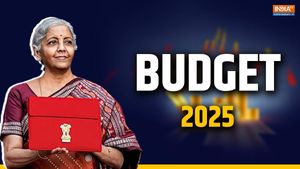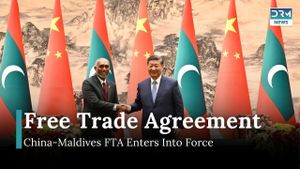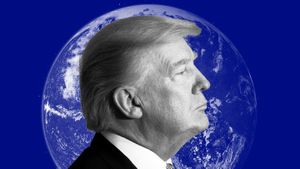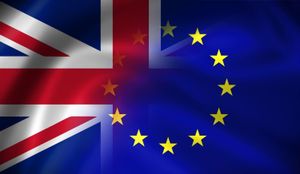On January 31, 2025, six American citizens were released from Venezuelan detention following a surprise visit by Richard Grenell, President Trump’s envoy for special missions, who confirmed their return aboard an airplane after meeting with Venezuelan President Nicolás Maduro in Caracas. This diplomatic mission aimed at securing the freedom of detained Americans marked a significant moment amid strained U.S.-Venezuelan relations.
Grenell took to social media to announce the positive outcome of his talks with Maduro, stating, "We are wheels up and headed home with these 6 American citizens." His post included images of the detainees, all dressed in light blue prison uniforms typically worn by those incarcerated within the Venezuelan system, signaling their previous perilous situation. Following Grenell's announcement, former President Trump expressed his satisfaction with the outcome on his own social media platform, praising Grenell and his team for the successful release.
The release occurred amid reports indicating at least nine Americans were still being held by the Venezuelan government, with some accused of terrorism and others labeled as high-level "mercenaries." The situation has been compounded by historical allegations from Venezuelan authorities asserting foreign detainees conspire with the U.S. to destabilize the country. These characterizations have consistently been denied by U.S. officials, who have demanded the prompt release of their citizens, emphasizing their unjust detentions.
One of the six released individuals, David Estrella, aged 64, was reportedly working for pharmaceutical companies before his arrest for allegedly plotting against Maduro's government. His family has expressed immense relief over his return, with Elvia Macias, Estrella’s former wife, stating, "After such horrible moments... we look forward to welcoming him home and taking care of him until he fully recovers." Estrella had entered Venezuela from Colombia to visit friends, finding himself caught up in the political turmoil.
While the U.S. government has no formal diplomatic presence in Venezuela, efforts have been increasing to secure the release of American detainees. Mauricio Claver-Carone, the U.S. special envoy for Latin America, reiterated earlier on the same day Grenell returned, stating, "American hostages held in Venezuela... must be released immediately." His comments underscored the urgency felt by U.S. officials amid the lack of transparency surrounding the detainment of American citizens.
Despite the release of these six individuals, challenges remain for U.S.-Venezuela relations. Maduro's government has not only faced sanctions from the United States, which the administration reinstated after the failure to hold free and fair elections, but he also expressed during his remarks the sentiment of starting "a new beginning of historical relations" with the U.S. He characterized the meeting with Grenell as "frank, direct, open and positive" but maintained the hardline narrative against U.S. imperialism.
The dynamic between Grenell and Maduro signifies the delicate balance of diplomatic negotiations, with Claver-Carone emphasizing this release was not part of any negotiation or quid pro quo arrangement. “This is not a negotiation,” he stated firmly, underscoring the steadfast U.S. position on the matter.
For those still detained, this moment may bring some hope, but the path to recovery and resolution remains uncertain. Witnessing the return of these six Americans may well serve as both encouragement and caution for the broader American populace about the complicated nature of international diplomacy and the precarious situations faced by nationals overseas. The mood evoked by the news of the release was bittersweet, mixing relief for the freed individuals with concern for their fellow citizens still trapped by the regime.
With discussions of historical relations on the table, the coming months may dictate whether this act of goodwill extends beyond mere rhetoric to form the basis of tangible negotiations. The fate of other American citizens still held captive in Venezuela draws scrutiny and concern, as U.S. officials are reminded of the delicate interplay of diplomacy and the human cost entwined within it.



